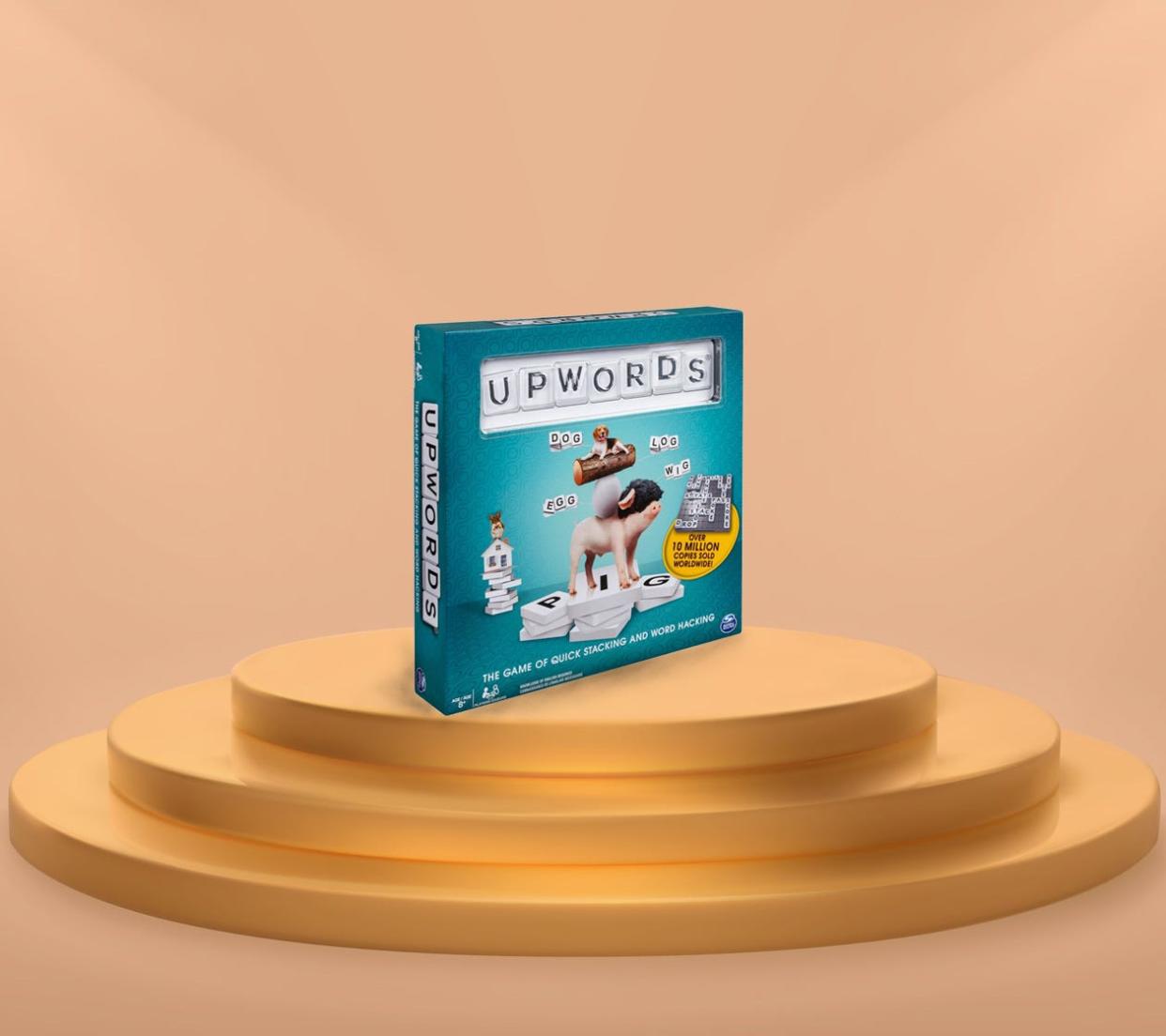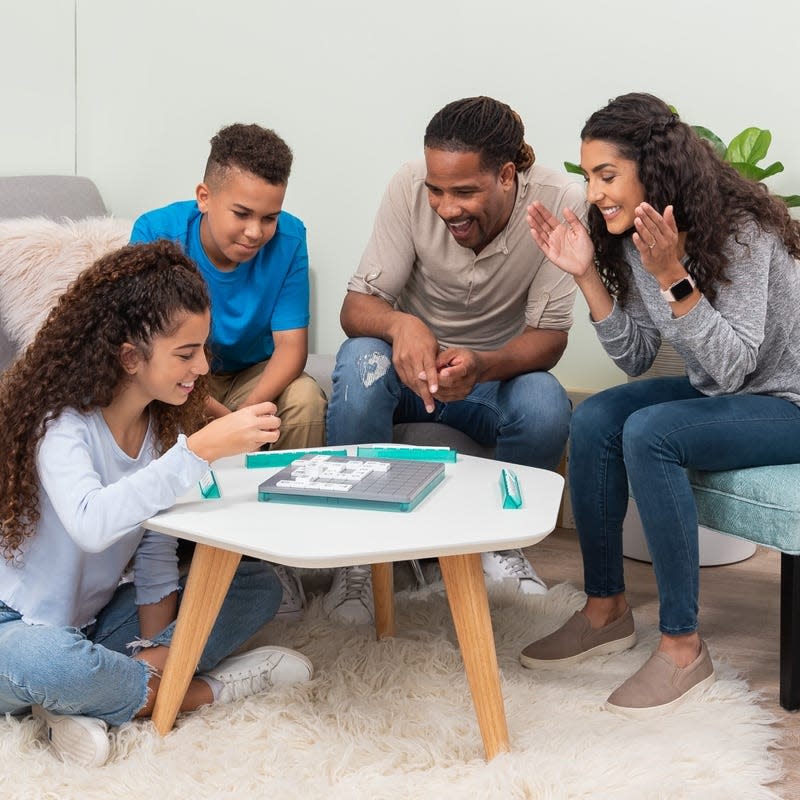‘Hardcore tile management’: Why Upwords is the superior word game (ahem Scrabble)

Perhaps one of the world’s most popular word board games is Scrabble. But the world’s most challenging and strategic word board game just might be Upwords.
Both games begin with players randomly choosing seven tiles, hidden from view, drawn from a tile bag.
Scrabble players are certainly aware that if they draw too many one-point tiles throughout the game their chances of scoring high and winning vs an equally skilled player with better draws are greatly reduced. Not to mention, Scrabble has two blank tiles and drawing these is significantly detrimental. The element of luck is quite prominent in Scrabble.
That element of luck is substantially reduced in Upwords, and not just because there are no blank wild card tiles.
Why Upwords is better than Scrabble
The first and most notable difference is that unlike Scrabble all tiles in Upwords carry the same value of 1 point, but don’t be misled. 1000+ point games are plentiful with the 100 tiles available. In turnabout fashion Scrabble’s value-based tiles such as Q(10 pts), Z(10 pts), and X(8 pts) are in Upwords worth one point and therefore not more valuable, in fact, they are problematic. In Upwords the Q tile is actually a Qu tile, but still comparatively problematic nonetheless.

If you’re already thinking to yourself that you’ll swap away your bad tiles think again. The Upwords swap maximum is one tile per turn. Good Upwords players seldom swap, except on the rare occasion whereby a strategic player drawing the game’s opening move opts to swap one tile and some rare end game scenarios whereby the player with the lead opts to swap with minimal unseen tiles remaining in the tile bag. Everything in between is hardcore tile management.
The one-tile swap maximum forces smart use of one’s existing tiles. The best play isn’t always the highest-scoring play. The best play is usually the play that takes into consideration what remains on your tile rack upon completion. Not entirely different from Scrabble but we’re just getting to the good stuff.
Stacking, scoring, scrabbled
Stacking! Change letters in existing words by stacking the tiles, hence the name Upwords. Score the value of the stacks plus the value of the remaining unchanged letters or letter stacks. Make words in two directions and score the stack(s) twice.
You may NOT change every letter in an existing word. You must leave one letter intact. Changing FLASH to CRAZY is valid because the letter A wasn’t changed and the CZY tiles you’ll be glad to part with. Changing FLASH to UNAUS also valid and rids your rack those pesky U’s for the same points.
One added scoring twist rule is that words created without stacks being involved are worth two points per tile. An opening play with a three-letter word is therefore worth six points. Playing a three-letter word parallel to the three-letter opener returns a handsome 18 points so there is a considerable strategy in choosing what word to open with.
Survival mode: Playing The Elder Scrolls V: Skyrim on survival mode is about 'earning the triumphs'
Microtransactions: In-game purchases are out of control, that's why I try to 'suck it up' to level up naturally
A dream opening play would be CIVIC. Pesky tiles dispensed and no parallel plays are possible by your opponent.
In Scrabble using all seven tiles on your rack awards a bonus of 50 points. In Upwords the bonus is 20 points. This difference in Upwords invokes an additional consideration of how to be tactful.
Using seven tiles brings the maximum amount of uncertainty onto your rack of tiles. An uncertainty not easily remedied as the swap maximum is one tile. The scoring in Upwords is embedded in the clever use of tile management and stacking more so than the home run play.
Transitioning
The end game strategy is a world in itself. Serious Scrabble players know what I’m referring to. In Upwords when a player exhausts their remaining tiles their opponent must subtract five points per unused tile on their rack. Being the first one out of tiles could mean the difference between winning and losing.
I highly recommend Upwords for any word game enthusiast. Granted there may be some elements that make for a difficult transition from Scrabble. The next time in Scrabble whereby you draw an abundance of one-point tiles and no blanks give it some thought, or the next time you beat the Scrabble computer opponent three times in a row consider the possibility that luck was a big factor. You may find that Upwords changes all that.
Joseph Michael Esterreicher is the self-proclaimed international Upwords master, but has no way to prove it.
The views and opinions expressed in this column are the author's and do not necessarily reflect those of USA TODAY.
Share your gaming story
This article originally appeared on USA TODAY: Best board games: Upwords over Scrabble, here's why

